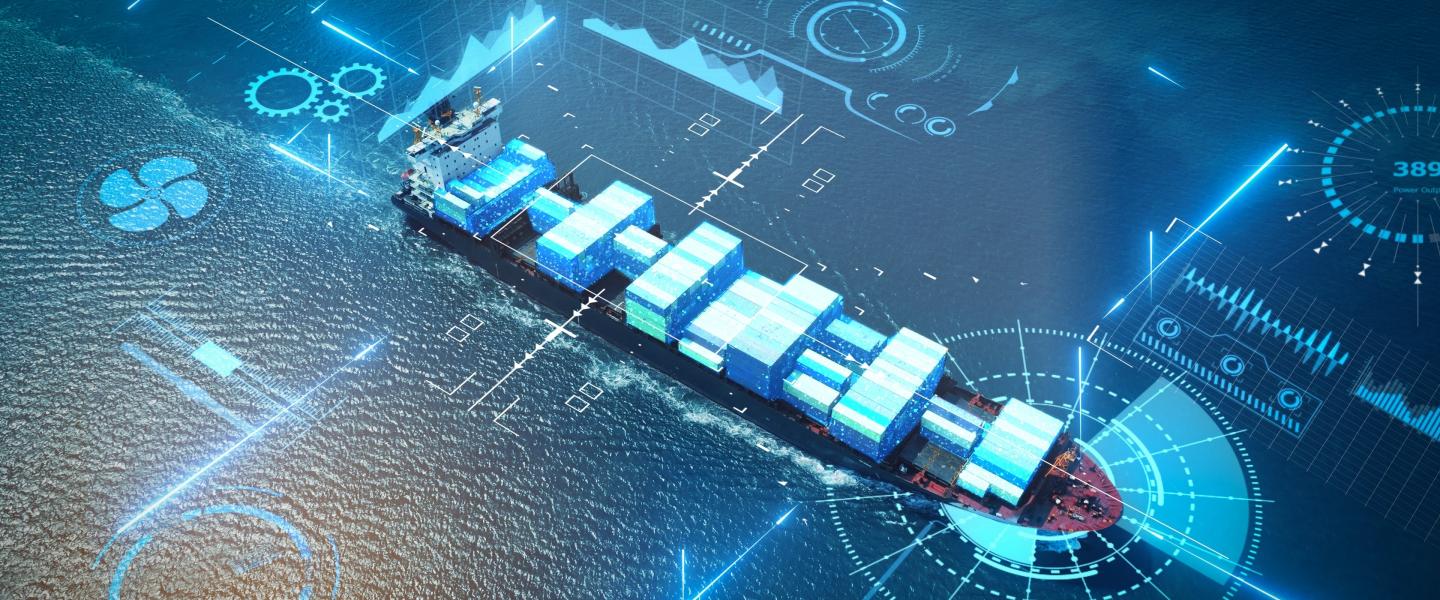The maritime industry is the backbone of the global economy, responsible for transporting over 90% of the world's goods. But is it sailing into unchartered waters by potentially integrating artificial intelligence (AI) into its core operations?
This transformative journey is overloaded with opportunities yet fraught with challenges, raising profound questions about safeguarding human rights at sea.
The Human Cost
AI holds the promise of increased efficiency and safety at sea, but its implementation may impact those working on our seas and oceans. As traditional roles become automated, a human toll emerges.
Many say that it couldn’t, but what if AI has the potential to completely replace seafarers by automating various maritime tasks such as navigation, cargo handling, and maintenance? The appeal of streamlined efficiency may come at the expense of the livelihoods and economic rights of those dependent on maritime employment.
At the heart of the issue is the fundamental human right to non-discrimination, and AI systems are only as impartial as the data that fuels them.
Depending on the algorithm, AI systems might make decisions that unfairly target or disadvantage certain individuals based on their characteristics, such as race, gender, or nationality, which could lead to discriminatory practices in areas like hiring, treatment on board, and access to equal opportunities.

Safety and Privacy on the Line
The vast data processing powers of AI systems can potentially contain a wide range of sensitive information, including personal details, health records, and employment histories.
Protecting the right to privacy for people at sea against the tidal wave of data and AI-driven analytics could be a persistent challenge, and the potential for breaches cannot be underestimated.
The maritime world relies on the navigational expertise of its seafarers. However, an overreliance on AI in vital maritime operations may present safety risks, directly impacting the right to life and safety at sea.
Further, AI systems are not invincible. They are susceptible to cyberattacks that could threaten the security of AI-powered vessels and potentially endanger not only the right to life but also the security of the vessels they operate.
Transparency and Accountability
Balancing the benefits of AI with the need for transparency and accountability is another imaginable concern.
AI systems rely on complex algorithms and machine learning to make decisions. These decisions can influence critical maritime operations, from navigation and route optimisation to predictive maintenance and safety protocols.
Many systems operate as "black boxes," meaning their decision-making processes are hidden from human scrutiny, so understanding the motivation behind AI-driven decisions will be crucial in scenarios where accidents or disputes occur.
Without a clear understanding of how AI arrived at certain decisions, seeking justice for any potential human rights violations becomes even more complex.
In an industry already largely out of sight and out of mind, this could further restrict efforts to hold criminals accountable and ultimately further affect access to justice for victims of human rights abuses at sea.
Bridging the Skills Gap
To make technology an asset, comprehensive training is crucial. However, issues around limited Wi-Fi connectivity, international regulations and controlled access to communication methods are widespread, meaning unequal access to AI technology will inevitably occur.
The right to benefit from scientific progress may not be equally distributed, and the lack of access and opportunities would create various challenges, including educational disparities, impeding the right to work, and social exclusion.
Steering the Course
While AI promises to enhance maritime safety, optimise operations, and reduce environmental impact, the need for comprehensive international regulations and standards to govern AI’s responsible use in the maritime industry is evident, and these benefits must continuously be weighed against the human rights and ethical concerns it creates.
As the maritime world embarks on this AI-driven voyage, we should all stand as a lighthouse of advocacy and safeguard those who work, live, and transit at sea, and technological progress must sail hand in hand with protecting human rights at sea.
Opinion by Charlotte Rumbol - Communications Manager & Project Officer at Human Rights at Sea
Contact: If you have any questions, please write to us at enquiries@humanrightsatsea.org
About Sharing. We welcome the use and dissemination of our work with proper accreditation. Please ensure that our Terms of Use are conformed with at all times.

